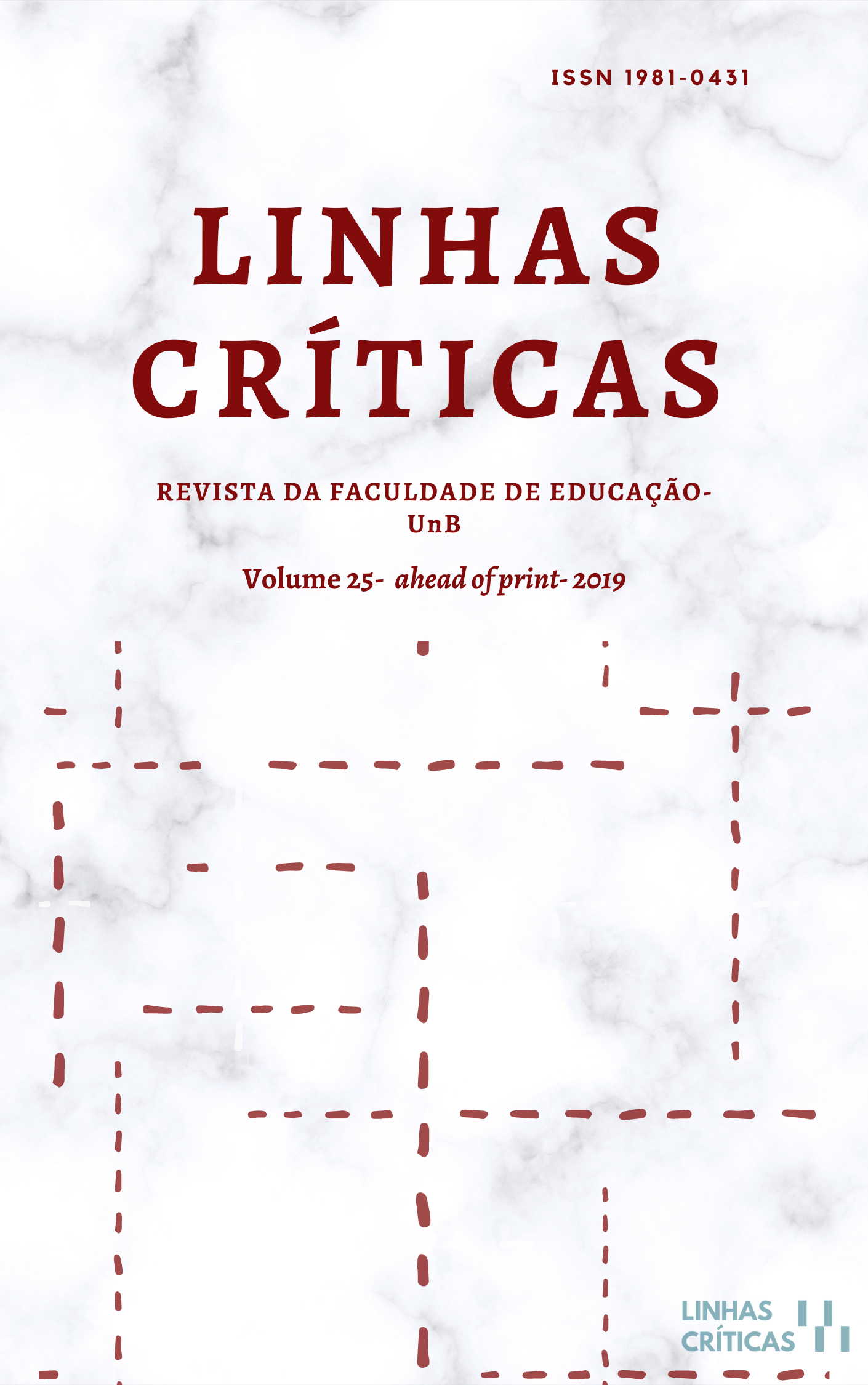Perspectivas em etnomatemática para a formação e atuação docente na Educação de Jovens e Adultos
DOI:
https://doi.org/10.26512/lc.v25.2019.23165Keywords:
Teacher training, Mathematical Education, Ethnomathematics, State of artAbstract
The article presents research clipping developed in the state - of - the - art model. We highlight publications involving analyzes and contributions of Mathematics Education focused on Youth and Adult Education. The objective was to contribute to the knowledge and the confrontation of great challenges of the EJA, especially those related to the training of the teacher who works in this modality. The results highlight the bases of the Ethnomathematics Program as a possibility to improve the quality of the educational process of the EJA, and its influence on the formation / performance of the professionals who work in this modality of teaching, in order to make it more effective, and adequate to the expectations and specificities of their students
Downloads
References
Bello, S. E. L. (2006) Diferenciação, relações de poder e etnomatemática: historiografia, perspectivas e (res)significações. Horizontes (Edusf), v. 24, n. 1.
D´Ambrosio, U. (2009) Etnomatemática: elo entre as tradições e a modernidade. Belo Horizonte: Autêntica.
Delazzana, A. R. Z., Vesterna, R. F., Maraschin, M. S., & Sathres, S. M. (2006). A educação de jovens e adultos: uma modalidade de ensino para suplência ou formação integral do indivíduo? Vidya (Santa Maria), v. 26, n. 2.
Di Pierro, M. C. (2005). Notas sobre a redefinição da identidade e das políticas públicas de Educação de Jovens e Adultos no Brasil. Educação e Pesquisa (Usp), v. 26, n. 92.
Fantinato, M. C. C. B., & Vianna, M. A. (2007). A Etnomatemática na Formação Continuada de Professores de Matemática da Educação de Jovens e Adultos do Município do Rio de Janeiro. Boletim Gepem, n. 51.
Freire, P. (1996). A pedagogia da esperança: um reencontro com a pedagogia do oprimido. Rio de Janeiro: Paz e Terra.
Gil, A. C. (2006). Métodos e técnicas de pesquisa social. 6.ed. São Paulo: Atlas, 2009.
Kessler, M. C. (2006). Educação de Jovens e Adultos: (des)construindo saberes nos espaços do aprender e ensinar matemática. Zetetike, v. 14, n. 26.
Kleiman, A. B. (2001). Formação de educadores: uma perspectiva de educação de idosos em programas de EJA. Educação e Pesquisa (Usp), v. 27, n. 2.
Mello, L. S. G., & Guazelli, I. R. B. (2010). Desafios para implementar a alfabetização científica numa comunidade de artesãos de Filé. Holos, ano 26, v. 2.
Melo, M. J. M. D., & Passegi, M. C. (2006). A matemática na educação de jovens e adultos: algumas reflexões. Horizontes (Edusf), v. 24, n. 1.
Moraes, R., & Galiazzi, M. C. (2006). Análise textual discursiva: processo reconstrutivo de múltiplas faces. Ciência e Educação. V. 12, n. 1, p. 117-128. http://www.scielo.br/pdf/ciedu/v12n1/08.pdf
Moraes, R., & Galiazzi, M. C. (2011). Análise textual discursiva. 2ª Ed. Rio Grande do Sul: Unijuí.
Rodrigues, R. L. (2010). Estado e políticas para a educação de jovens e adultos: desafios e perspectivas para um projeto de formação humana. In: Coleção didática e prática de ensino: Convergências e tensões no campo da formação e do trabalho docente. p. 49-59. Belo Horizonte: Autêntica.
Rosa, A. C. S., & Prado, E. (2008). Educação de Jovens e Adultos: as dimensões política, profissional e pessoal na formação docente. Olhar de Professor, v. 10, n. 2.
Santana, L. G. (2008). A formação Continuada de Professores de EJA: uma reflexão sobre a prática. Pesquisas e Práticas em Educação Matemática, v. 10, n. 15.
Zorzi, F., & Franzoi, N. L. (2010). Saberes do trabalho e do trabalhador: reflexões no contexto do Proeja. Trabalho & Educação (Ufmg), v. 19, n. 3.
Published
How to Cite
Issue
Section
License
Copyright (c) 2019 Revista Linhas Críticas

This work is licensed under a Creative Commons Attribution 4.0 International License.
Authors who publish in this journal agree to the following terms:
-Authors maintains the copyright and grants the journal the right of first publication, the work being simultaneously licensed under the Creative Commons Attribution License which allows the sharing of the work with recognition of the authorship of the work and initial publication in this journal.
- Authors are authorized to enter into additional contracts separately, for non-exclusive distribution of the version of the work published in this journal (eg publish in institutional repository or as a book chapter), with acknowledgment of authorship and initial publication in this journal.
-Authorers are allowed and encouraged to publish and distribute their work online (eg in institutional repositories or on their personal page) at any point before or during the editorial process, as this can generate productive changes as well as increase the impact and the citation of published work (See The Effect of Free Access).



